Finding creative talent
From being the home of hugely successful poets and authors to being at the forefront of Manchester’s success in securing UNESCO City of Literature status, Manchester Metropolitan can proudly claim to be an intrinsic part of the city’s cultural heartbeat.
And as part of its championing of the importance of creativity to society, the University has also proved to be the breeding ground of new talent, both through the education delivered by the Manchester Writing School and initiatives such as the Manchester Writing Competition, the UK’s biggest prize for unpublished literary work.
Devised in 2008 by Professor Carol Ann Duffy DBE – UK Poet Laureate 2009-2019 and Creative Director of the Manchester Writing School – the competition has for the last 12 years, encouraged new work and sought out the best creative writing from emerging talent across the world.
Prize money totalling £215,000 has now been distributed through the competition, with entries coming from over 80 countries, underlining Manchester’s status as an international centre for creative writing.
The 2020 competition continued to demonstrate its international reach as Canadian poet and critic, James Pollock, won the Poetry Prize, while home-grown talent Ian Dudley won the Fiction Prize.
The judges hailed the “formal skill, marvellous musicality and depth of thought” of Pollock’s formal, eight-line poems inspired by everyday objects; and Dudley was praised for his “elusive yet at the same time accessible story” Exit Row.
Pollock was chosen as the Manchester Poetry Prize winner by a judging panel chaired by the Forward Prize-winning poet Malika Booker, who is Lecturer in Creative Writing at Manchester Metropolitan.
A poet, critic and academic based in Wisconsin, USA, Pollock’s poems Lighter, Scale, Screw, Sewing Needle and Microphone were described by judges as “an exquisite piece of machinery, mirroring its subject, every cog and wheel finely oiled and finely dovetailed.”
Booker said: “These poems could only have been written by an accomplished poet with a wonderful ear. These poems were delicious on the tongue and we had pleasurable moments reciting the words aloud in order to savour and celebrate these compact poems, that are, in a way, metaphors for poetry itself.”
Pollock said: “I am moved and honoured that my poems have been awarded the 2020 Manchester Poetry Prize, and I tip my hat to the talented poets on the shortlist, for whom many future honours are in store.”
The Fiction Prize judging panel was chaired by novelist and short story writer Nicholas Royle, Reader in Creative Writing at Manchester Metropolitan.
Winner Dudley is currently studying full-time for a PhD in Creative Writing at the University of Birmingham. His story Exit Row is a series of short individual vignettes, set in hotels, airports and at the bedside of a dying friend.
Royle said: “Trying to nail down what it is about Ian Dudley’s Exit Row that made us pick it as the winner, out of a very strong shortlist, you realise that its appeal is partly down to its very un-nail-down-ability. It’s an elusive yet at the same time accessible story that seems to recede from you even as it swims into clearer focus.”
Dudley said: “Writing is a lonely job, and for the most part writers wouldn’t want it any other way, but it’s impossible to overestimate the energising effect of a quiet pat on the back. Being shortlisted for the Manchester Fiction Prize felt like a huge win in itself.”
Each winner receives £10,000 and they also join a glittering list of former Manchester Writing Competition winners whose literary careers have been boosted by their awards, including Mona Arshi, Helen Mort and Alison Moore.
Read the winning entries below.
Ian Dudley
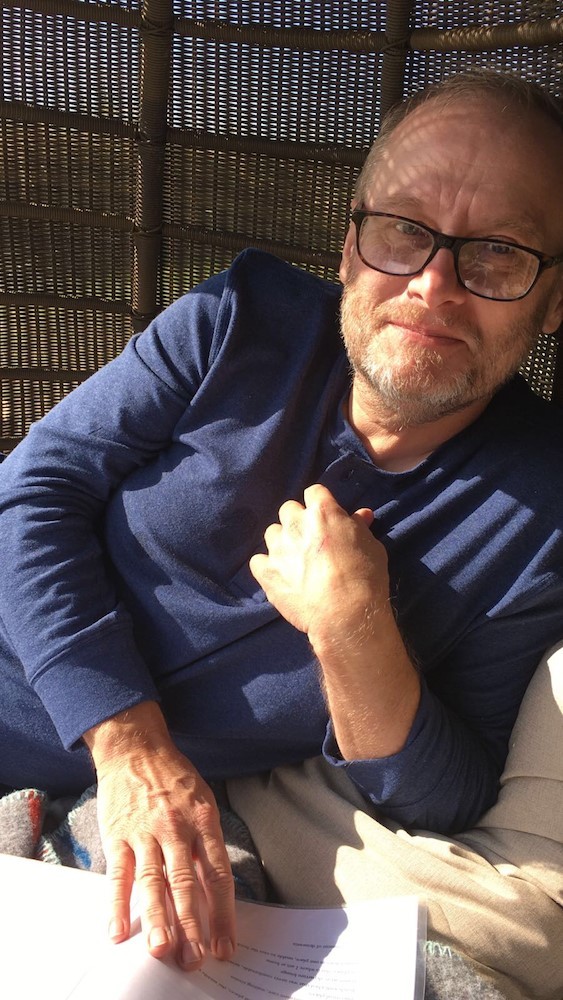
Ian Dudley studied zoology at university. He worked in market research, travelling extensively in Europe and the US. He’s had short stories broadcast on BBC Radio 4 and Radio 7, and is currently studying full-time for a PhD in Creative Writing at the University of Birmingham.
Exit Row
After being searched and questioned and sealed for hours in the passage grave of a longhaul plane, you’re taken to a holding cell in a business hotel.
Hanging your dripping coat on the back of the door, you set the coffee maker clucking soft brown fumes. Showered warm, you dry yourself and take your coffee to the window.
The city is closed in a pearl of rain. Its canyons are so thick with vapour, light bends. The world ends at the corner of the street. A lone SUV ploughs a bow wave past the front of the building.
Behind you the silent TV replays The Masters from the summer you turned 18. While you look the other way, the Kodachrome colours fade into the white noise of rain.
The conference room is piled with the fruits of the earth: a ziggurat of berries; a melting ice floe plugged with sodas.
Your palm on the window feels the hive of sunlight pressing back. It’s heat stroke weather but you’re chilled as slaughtered meat – a king whose cheesy snacks turn his fingers gold.
After a fuck off son et lumière that buttoned down O’Hare, it’s past 2 AM when you land in Minneapolis. The only cab on the rank has the decal scars of a one-time patrol car and a driver so pale he could be blown away.
The car smells like a body and the trunk won’t pop. You buddy your bag on the back seat watching a hospital band chase the driver’s wrist as he fights the tracking.
An illuminated 10-metre fibreglass Indian points the way to your unlit hotel.
You’ve lost your meeting in a hall of mirrors: identical rooms with boardroom tables, platters of catered food, widescreen TVs, and conference phones.
You’re training the trainer, but can’t remember if today you’re a player or the prince. If you’re stabbed will you get up to take a bow or lie on the floor bleeding out?
The trainer asks if he can ‘stop you there’.
You stare into your coffee; the blackness is full of stars.
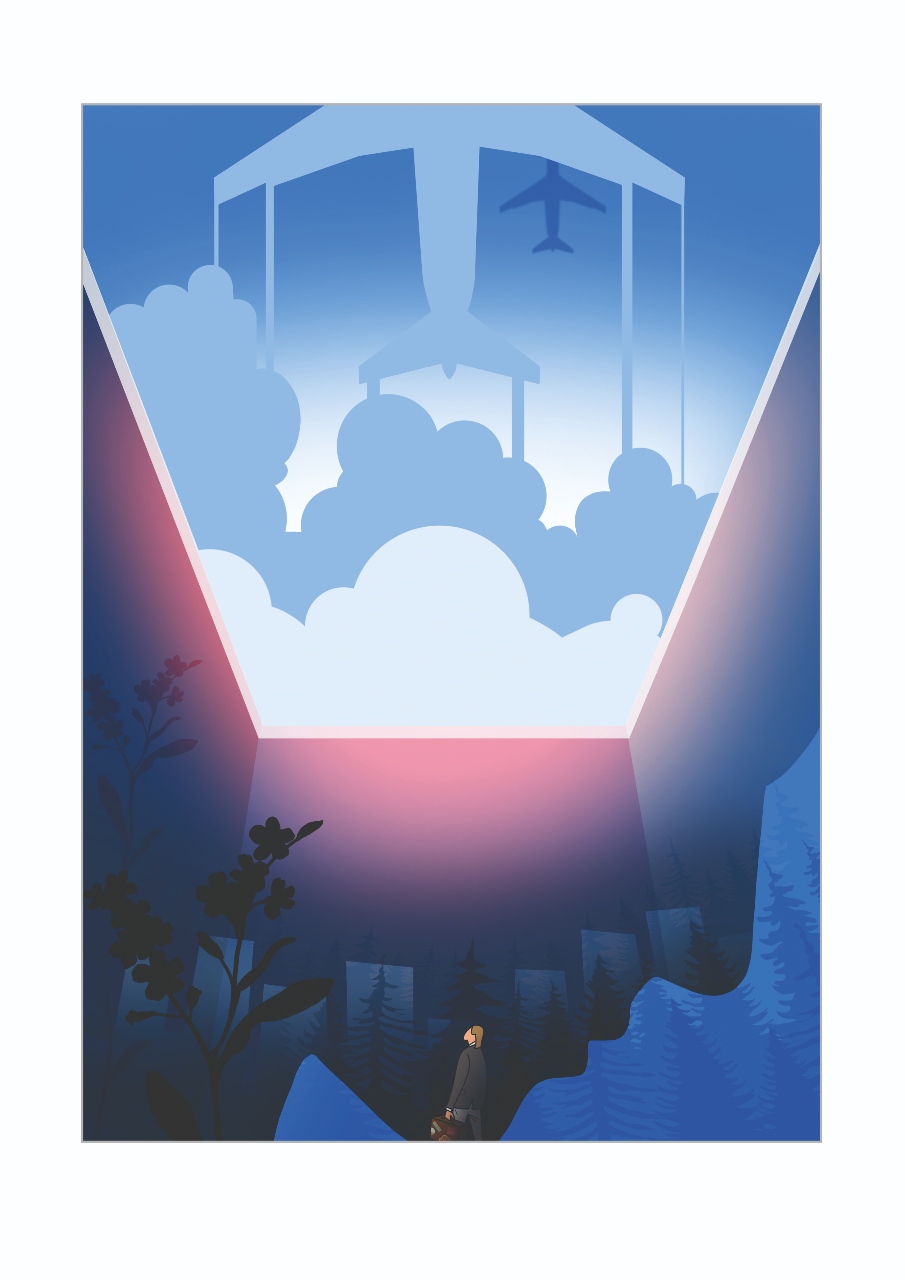
Leaning back in your chair you notice a photo of you surrounded by your team. You’re holding a photo of your team surrounding you holding a photo.
You tick the box that says ‘here for business’, but it makes no difference. There’s sand on the floor of the hotel lift. Two women in bathing suits chat across you.
You want to get to bed so you can put in a full eight hours of lying awake. When you give up and head down you’re the only zombie in the restaurant, drinking whisky sours, forking french fries and bronzed red snapper.
You say you won’t care if you never come here again; it’s a nightmare theme park of strip malls, clip joints, and churches, archipelagoes of houses with moorings, box-fresh golf courses and instant villages.
You’re still burning bridges when the ghost in your phone trills a hurricane warning. It’s time to leave when it starts raining in your room.
We apologise for the delay to this flight…
You’re spat into a plaza of antiseptic light to suffer and be unforgiven. Hours dead, parents hang from their necks; their headless children reel like chickens. The gutters of hell run with boredom. There’s no time to do anything.
When the Tannoy jerks you to life, you line up in the dusk along the airside window; mirrored in fluorescent light, you and your shade queue for the flight.
You see a glass falling in slow motion, smashing into a thousand pieces. It’s so slow it takes days.
You’re awake at dawn, cold and hungry. Go outside and your skin burns in the wind that leans on your shoulder like a friend.
The haggard crow on top of a thorn bush is a tattered plastic bag.
You’re ill. Recovering. Both.
Larks burble above the fields.
No unauthorised persons beyond this point
At the entrance to the forest you surrender: laptop, keys, phone, coins, tablet, belt, and pocket knife. In the scanner you raise your hands to placate and confess: English, unarmed, and mostly harmless. They let you pass.
You try to remember the names of trees, which way is east, how to calculate the time of day, how to find water, and which berries you can eat. You begin to feel uneasy. The wind in the leaves makes a sound like rain.
Even now, if you were wearing the shoes you had as a child with a compass in the heel, you could walk right out of here, leaving the spoor of fox and badger and otter behind you.
You learn many things: that the flowers of forget-me-nots placed on the eyelids bring dreams; that a sprig of rosemary in the hands of the dead will not let them forget.
Some are untrue. Tincture of valerian doesn’t bring you sleep, but the discovery you can fight what next with nothing.
On your desk is a pot of pencils taken from hotels, an Anglepoise lamp, a saucer full of paperclips, a drinks coaster, and a pay slip.
In the cafe you watch raindrops pick holes in the pavement.
The weight of water in your woollen coat pins you to your seat.
The last time you had contact with reality was in the 80s when you voted in Physics that a pound of feathers was heavier than a pound of lead.
Thirty years later, the only time you feel at home is when you’re trapped in a revolving door of timezones and anonymous rooms.
A butterfly flags out of the meadow into a soft limestone landscape: parade grounds of silver olives, square white buildings, lanes drenched in the shade of umbrella pines, red, friable earth.
While you sleep, irrigation bleeds into the roots of olives, medlar, pomegranate, lemon, the lozenge of expensive grass trimming the swimming pool.
A swift clips low, stalls, sips an insect out of the air, and flicks away. Buried machinery hums and currents thread the water – priceless, sterile, silver and turquoise.
You dream of emigrating to Mars. You get so high you see the earth as paradise.
After a phone call, you drive through three countries to be at the bedside of a dying friend.
The rented apartment is clean and inhospitable.
First thing in the morning the loops of the cable car shine against the dark pines, swooping upwards and vanishing over the crest of the hill.
You feel trapped at the bottom of the valley like water.
The téléférique lifts you above a thousand metres and you look the overwhelming Alps in the eye. In the valley your phone is a camera, but at altitude it chirps into life gobbling messages and news.
The people who live in the high meadows are the colour of tea. Their calves flex like hydraulic pistons.
You take photos of the concentrated flowers and follow the path along the ridge-line, sweating salt into the dust dry air.
At a wooden platform in the meadow you board the train to the sanatorium. The track rises through 30 degrees and the carriage struggles upwards on its gears. Gravity presses you back in your seat. The air is so pure you have to remember to breathe.
You disembark into an empty field. There is nothing to see except, in the distance, a gigantic bowl of rock, raw as a ruined hip joint, pale with the absence of an exhibit removed from display. Walking closer you see the score marks where data was deleted.
You climb upwards. The higher you climb the more the gradient tightens and the closer you have to lean to the world. The earth under your feet starts to fall away. You jump for safety onto a flat and floating stone.
When you turn, you’re looking into a frozen blue wave as tall as a skyscraper.
You hear the sound of water in a desert: huge cisterns filling and emptying.
Falling scree clip-clops downhill. Time moves so fast you can see it.
Darkness forks the light, the reboot chimes, and scalding rain liquefies the hills. Gagged drains vomit fountains. Roads resurface under choppy rivers.
Numb air spills from the chiller cabinet. You miss the oldfashioned English weather, the pragmatic, half-hearted climate. You buy milk and butter and a bag of bird seed.
In the kitchen you keep a list of prized sightings: a nuthatch in eyeliner and powder blue opera cape, a young male woodpecker with a cherry-red mohawk.
Grey squirrels try to tear the feeder open. You scare them off with a Nerf gun and go out to pick up the bullets.
Living this close to the ring road you’re deafened by surf, your lungs thick with invisible particles. You think of Keats dying of consumption in Rome, haunted by memories of herons and hares and small rain.
Through the open window you hear starlings needling the twilight. You press play and the steady notes before the music begins tidy your feelings away. Heavy chords weigh down the night until it’s too dark to see.
Perhaps wet feet don’t mean the end of the world. Perhaps there is a future abounding in light bulbs, milk cows, brand-new machines.
The night grows unfathomably calm. To posterity your life will seem strange, inconvenient, stupid, not clean enough, even sinful, and there is nothing you can do.
James Pollock

James Pollock’s first book, Sailing to Babylon (Able Muse Press, 2012), was a finalist for the Griffin Poetry Prize and the Governor General’s Literary Award in Poetry, and winner of an Outstanding Achievement Award in Poetry from the Wisconsin Library Association. His poems have appeared in The Paris Review, AGNI, Plume, The Walrus, and many other journals, and in anthologies in the U.S., the U.K., and Canada. His other books include You Are Here: Essays on the Art of Poetry in Canada, and The Essential Daryl Hine. His second book of poems, Durable Goods, is forthcoming from Véhicule Press in Montreal.
Scale
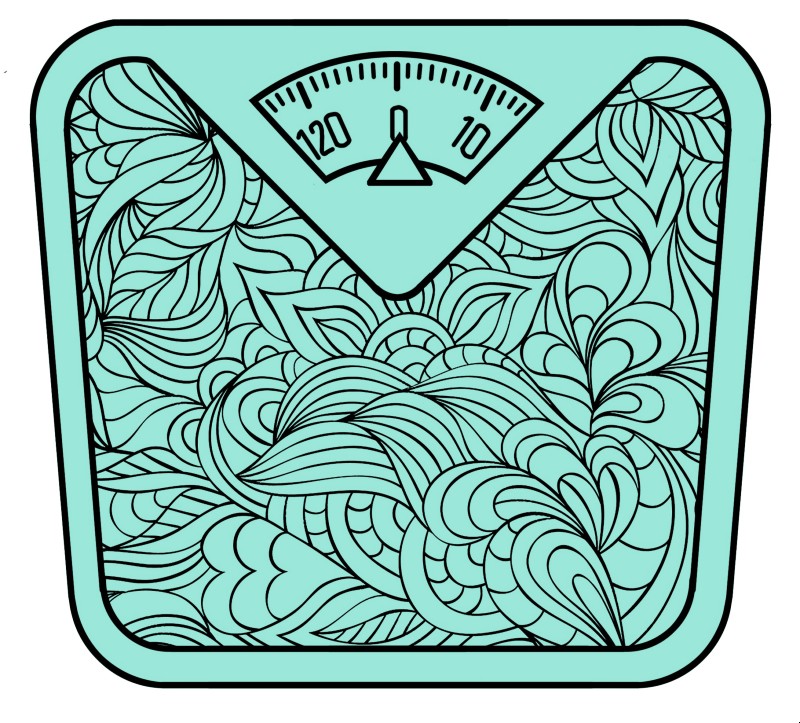
To bear what it has to—that is the craft.
Also, to measure the force by which the world
brings one down. Imagine if it laughed
every time its inward dial got whirled,
bearing the unbearable; which describes
how it does justice. It’s a bit uncouth.
It lends you gravitas precisely when your scribe’s
heart is weighed against the plume of truth.
Screw
Spiral staircase, or ramp, rather, as in
a tiny parking garage, or the shoots
of the runner bean—such things as spin
a helix, one of nature’s absolutes,
into the matrix of the universe.
Turn the self-locking vortex by the head
with your torquing driver; such tight verse
holds all things together by a thread.
Lighter
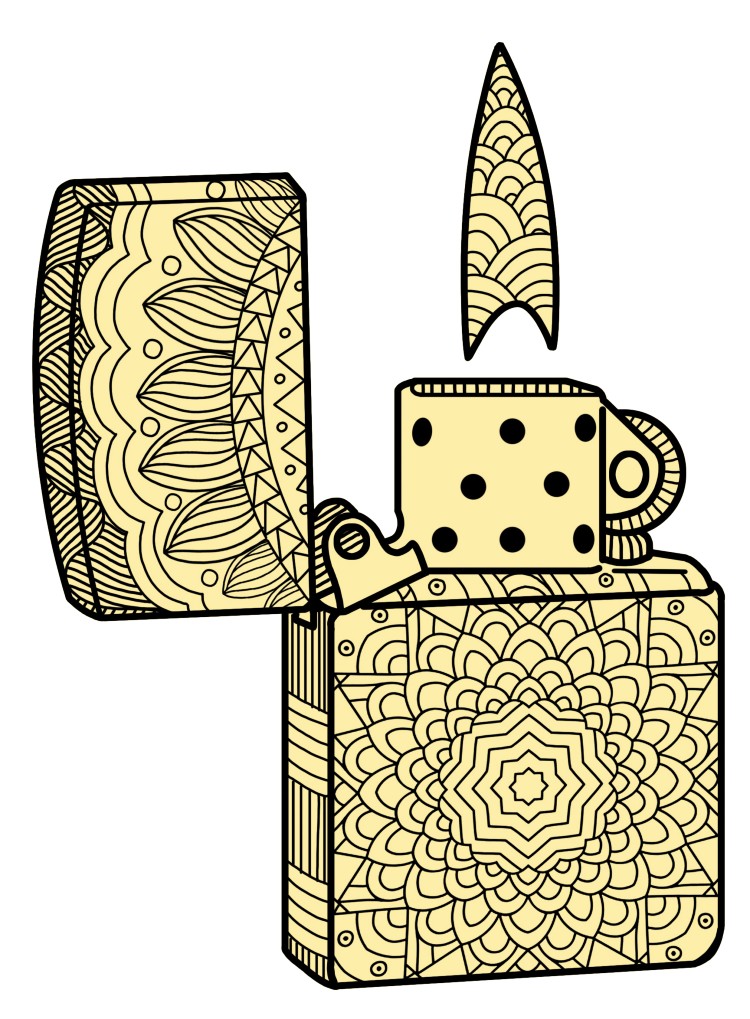
The hand-held Titan doffs his cap thus: schling!
A little sloshing in the belly. Wick,
spark wheel, eyelet, flint spring, chimney. Plaything,
the ancient miracle become a trick,
or many: Drop Spark, Bar Slide, Spinning Wheel,
The Married Man, The Twilight Zone, The Gun.
No one remembers what it took to steal
this little tongue of fire from the sun.
Sewing Needle
All eye and backbone and piercing toe.
Stiff paleolithic archetype of skill,
sine qua non of duds—why does it go
up-and-down, over-and-under, until,
like a sine wave, the way grows eternal?
It is the original notion: to fasten,
whereby the fastener makes the self external.
It is the longing of the eye: to fashion.
Microphone
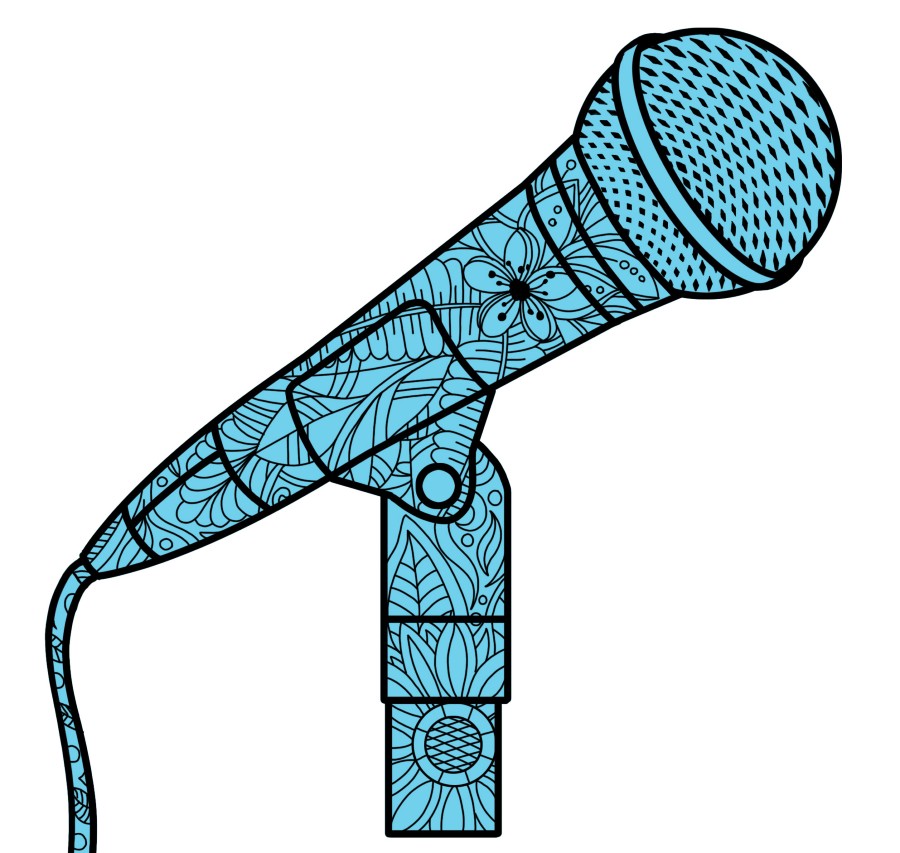
A good listener, with a heart-shaped zone
of sensitivity to vibrations
in the very air, your fine microphone
amplifies the small imagination’s
vibrato-in-the-diaphragm to flower
in the speaker with pure vocal grace.
Only technicians know what phantom power
helps it fill the ear with such deep space.
